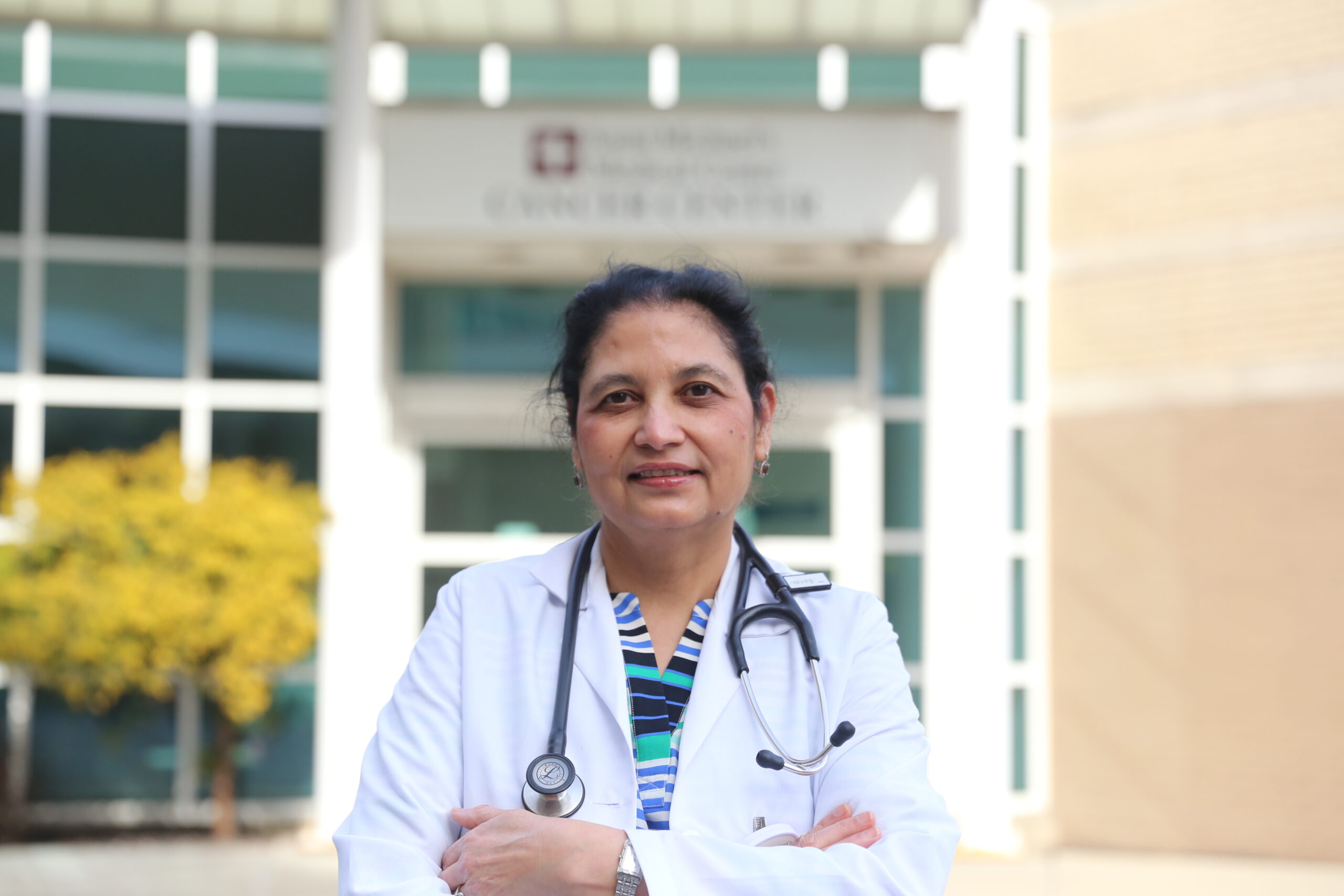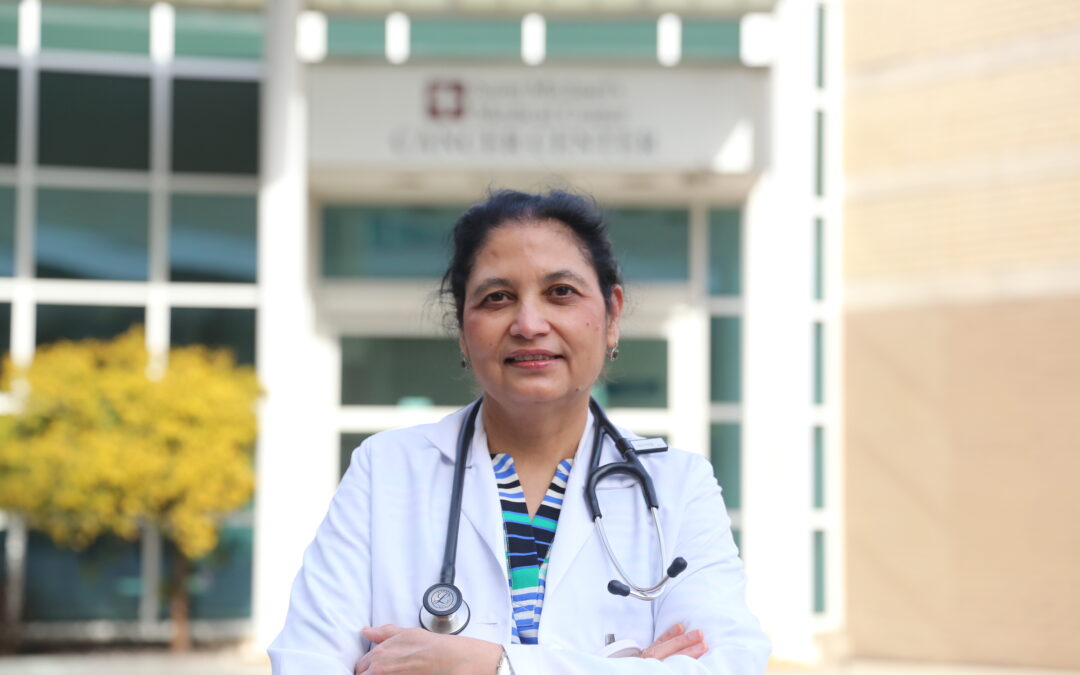
By Gunwant K. Guron, MD
Medical Director
Nadeene Brunini Comprehensive Hemophilia Care Center
Blood Research Institute
Saint Michael’s Medical Center
Blood is the lifeline of our bodies. This precious liquid brings oxygen, nutrients, and hormones to all organs and tissues. Blood also carries carbon dioxide and waste materials to our lungs, kidneys, and digestive system to be removed. Blood cells fight infection and help heal wounds.
More than 3 million people in the United States have a bleeding disorder because their blood does not clot properly. A bleeding disorder can be inherited — such as hemophilia, von Willebrand disease, or platelet disorders — or it can result from acquired conditions such as cirrhosis of the liver, end-stage renal disease, acquired platelet dysfunction, vitamin K deficiency, and medications.
Saint Michael’s Life-Changing Care
Here at Saint Michael’s Blood Research Institute (BRI), we provide diagnostic services, medical treatment, and supportive care for patients with all types of bleeding disorders, whether mild, serious, or life-threatening. The BRI has its own on-site laboratory for diagnosing bleeding disorders through a combination of routine and specialized coagulation blood tests.
The BRI’s esteemed Nadeene Brunini Comprehensive Hemophilia Care Center is one of only four in New Jersey to be federally and state funded and designated by the U.S. Health Resources and Services Administration and the Maternal and Child Health Bureau as a comprehensive center specializing in the diagnosis and treatment of hemophilia A and B, von Willebrand disease, and other bleeding and clotting disorders.
This prestigious designation attests that we provide the highest quality care and the most advanced treatments — whether in an emergency or as a prevention — delivered by a team of physicians, nurses, social workers, physical therapists, data specialists, health educators, and other professionals.
Our hemophilia care utilizes breakthrough treatments and prophylactic therapies, including injectable medications called clotting factors and monoclonal antibodies, nose sprays, hormone therapy, and preventive pills to reduce bleeding during dental procedures, surgery, and menstruation. We also provide patients with information on FDA-approved gene therapy for hemophilia. Our team assists patients with physical therapy, orthopedic care, emotional support, and referrals to community resources.
The Menstruation-Bleeding Disorder Connection
A bleeding disorder can be missed in women who experience heavy menstrual bleeding. Many women think that heavy periods run in their families or are just something to deal with every month.
However, almost 1 in 10 women with heavy menstrual bleeding have an inherited bleeding disorder called von Willebrand disease. Their heavy bleeding is caused by a low level of a certain protein that helps with clotting.
Women with von Willebrand disease may suffer needlessly from years of heavy menstrual bleeding and its side effects of iron deficiency, shortness of breath, mental fogginess, and diminished quality of life. They are also at risk for heavy bleeding after dental procedures and surgery, and during childbirth.
von Willebrand disease is diagnosed through a patient’s medical history and a combination of blood tests. The disease is not curable, but most patients live a normal lifespan with treatment, which may include IV clotting factor concentrate, nose spray medications, hormone therapy to reduce the duration of their periods, or pills to prevent the breakdown of necessary blood clots during the first few days of a menstrual period or before dental procedures, surgery, or childbirth.
Comprehensive Care at the BRI for Other Bleeding and Clotting Disorders
At the BRI, we provide expert care for all bleeding and clotting disorders. This includes caring for patients with rare bleeding disorders (RBD) and those with clots in the legs, lungs, and/or other unusual sites of arterial or venous thrombosis.
Watch for These Signs
Bleeding disorders do not always exhibit outward signs, but these are common:
- heavy menstrual bleeding
- easy bruising
- bleeding gums
- unexplained heavy nosebleeds
- blood in the urine or stools
- joint discomfort
If you notice any of these signs, call your health care provider to set up an appointment for a check-up and blood tests. Bleeding disorders are serious, but they are treatable.
Dr. Guron is a board-certified hematologist-oncologist, who has been practicing hematology and oncology at Saint Michael’s Medical Center for more than 30 years. As director of the Nadeene Brunini Comprehensive Hemophilia Care Center and a specialist in coagulation disorders, Dr. Guron focuses on providing the highest quality care and performance improvement.
To schedule an appointment at the Blood Research Institute, call 973-877-5340.


